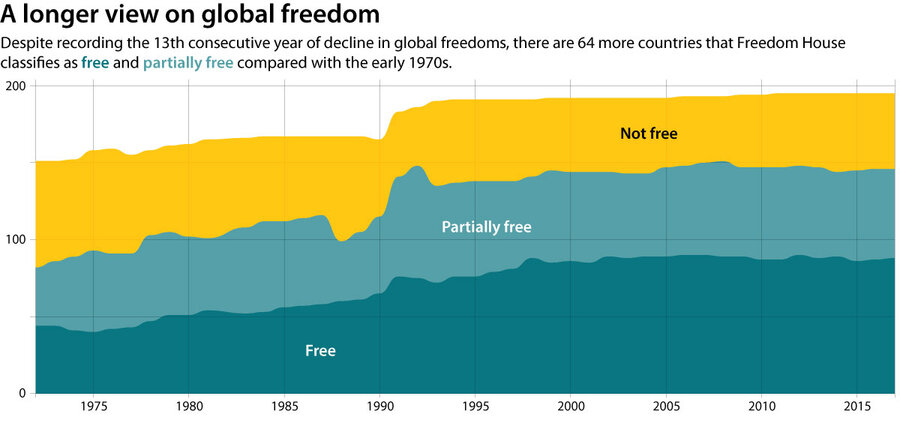Our reporters asked how the New Zealand mosque shooting is perceived by other Muslims. The global responses range from fear to hope in Western values.
Monitor Daily Podcast
- Follow us:
- Apple Podcasts
- Spotify
- RSS Feed
- Download
 David Clark Scott
David Clark Scott
Where some see only rising waters, others see rising resilience.
From Mozambique to the U.S. Midwest, storms have wreaked havoc and hardship. Cyclone Idai tore across southern Africa leaving an estimated 1,000 dead. In Nebraska, record flooding has forced evacuations in dozens of towns. Some 200 miles of levees have been breached in four states, and 14 bridges have been washed out.
But the devastation is being met by a surplus of goodwill. “We’ve had more volunteers than what we need, and I mean people are willing to do anything to help out,” said Craig Risor, a coordinator at one of four shelters in Norfolk, Nebraska.
Across the Midwest, generosity and grit are native qualities. Most people don’t have to ponder whether or not to open their wallets, their homes, or their hearts.
Nebraska’s Fremont Municipal Airport is “a scene of human generosity,” wrote one columnist. As donations of diapers, toiletries, and blankets arrived on planes from Iowa, flights left full of evacuees. The president of Silverhawk Aviation said his firm provided about 20 free flights for about 150 people.
Three people have reportedly died in the flooding, including James Wilke. The Nebraska farmer jumped on his John Deere to assist a trapped motorist. As Wilke drove over a bridge, it collapsed into a swollen creek.
“He was always the first to go help somebody,” his cousin told the Omaha-World Herald. “He was a person who wouldn’t just talk about making things better. He would do it.”
Now to our five selected stories, including how some countries are countering autocracy, Venezuela’s road to stability, and the best biographies of March.











